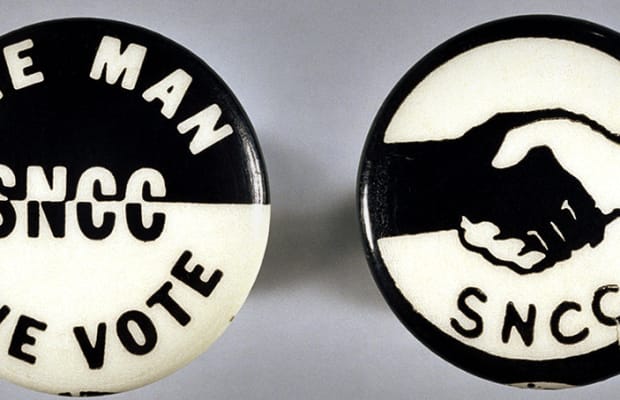The John Hope Franklin Research Center for African and African American History & Culture in the David M. Rubenstein Rare Book & Manuscript Library at Duke University seeks funding to formally establish the Movement History Initiative as a central program to expand our collective understanding of the Civil Rights Movement and contemporary activism, telling that story from the bottom up and inside out.

The Movement History Initiative (MHI) is a unique collaboration among veterans of the Student Nonviolent Coordinating Committee (SNCC Legacy Project), present day activists and grassroots organizations, Duke University Libraries, Franklin Humanities Institute, Center for Documentary Studies at Duke University and noted movement scholars at other institutions built upon the following core principles:
- Activist-Centered Scholarship
- Equitable and Non-Exploitative Practice
- Building the Archive of Movement Materials
- Use of Digital Tools to Broaden Public Knowledge
Through volunteer contributions from our partners, we have successfully built bridges between the academic and activist communities to reach our core audiences of students, educators, activist/organizers and researchers. This partnership has led to the development of innovative websites that serve as archives and educational tools of movement history freely accessible to anyone in the world. These include the SNCC Digital Gateway and Civil Rights Movement Archive, whose respective content serve as encyclopedic resources on SNCC history and the broader Civil Rights Movement; both sites are visited by nearly 250,000 visitors per year. There is also the redesigned organizational site of the SNCC Legacy Project which serves as a repository that provides context to the lessons learned from the 1960s and the continuation of activism after the 1970s.
Dynamic public programs including a national voting rights conference, the Learn from the Past, Organize for the Future symposium, summer teacher institutes with K-12 instructors , and public conversations featuring with inter- and intragenerational activist voices have amplified the MHI’s engagement with a wider audience. Finally, the MHI is actively building and preserving the archive of the movement through video/oral interviews, critical oral history sessions, and curated original works by movement veterans.
Taken together, the MHI firmly believes the output of our collaboration is invaluable to understanding the struggle for civil and human rights and the impact that struggle has had on shaping the future of democracy.
Sustaining this work will require full time paid staffing support and robust technological infrastructure. Funding would ensure our commitment to give dominant voice to those who made the history themselves; unpacking the why and how behind key movement activities. Your contribution would allow us to continue preserving the history and legacy of the Civil Rights Movement and modern social justice movements within the Black Freedom Struggle.
There are many ways to help support the Movement History Initiative. A $4.5 million endowment will fund all activities described below, while a $350,000 gift would support the initiative for three years.
Support the MHI Coordinator - $70,000 annually, $2.5M to endow
The MHI Coordinator is an administrative position serving as the designated lead to implement projects, maintain communication among MHI members, and manage outreach and public programming. Coordinator would also manage and update the SNCC Digital Gateway and Civil Rights Movement Archive.
Support the MHI Support Staff - $20,000 annually
Under the guidance of the MHI Coordinator, MHI support staff will help create digital content from the MHI archive for sharing with our core audiences
Support one or several of these Signature Programs
- Named Annual Book Prize for the best new work on movement scholarship - $20,000 annually ($10,000 award, $10,000 program and advertising)
- Artist Research Fellowship to support artist and creatives to visit Duke and research the MHI archive
- Annual lecture on the history and legacy of social justice and the Black Freedom Struggle - $5,000 honorarium
Support Digital Archival Storage and Maintenance - $10,000 annually
- Funding for development and maintenance of web-based projects including
- Digitization of archival materials related to the movement with recognition of the donor who “adopted” the digital collection or project.
- Ongoing support for digital platforms, including editing, storage, and updates
- Sustained archival storage for born digital materials
Give to the Movement History Initiative
For more information please contact Blue Branton, Associate University Librarian for Development.
